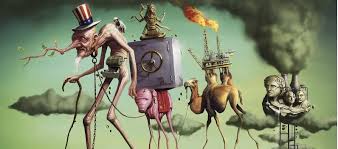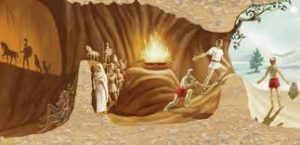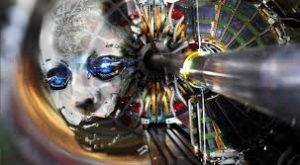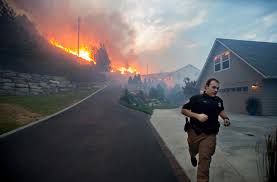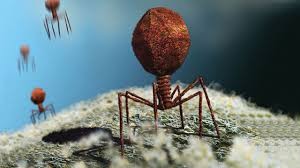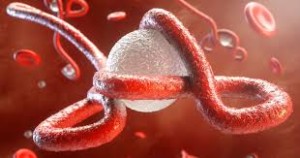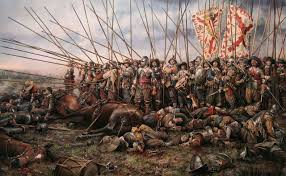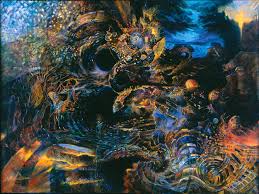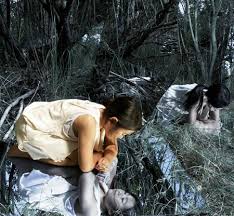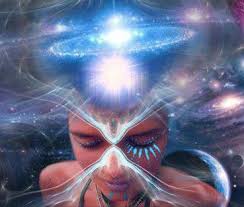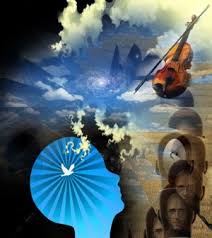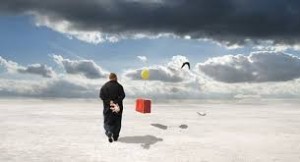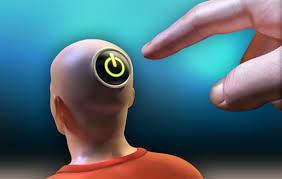In historic terms as we understand them, this is the first time that all of the inhabitants of a country were to be legally considered equal citizens one with the other. That was to be, and is, the ideal. In practical terms, of course, there often are inequalities. Treatment in the marketplace, or in society, often shows great divergence from that stated national ideal. Yet the dream is a vital portion of American national life, and even those who are unscrupulous must pay it at least lip service, or cast their plans in its light.
In the past, and in large areas of the world now, many important decisions are not made by the individual, but by the state, or religion, or society. In this century several issues came to the forefront of American culture: The exteriorization of organized religion, which became more of a social rather than a spiritual entity, and joining of science with technology and moneyed interests. William James’ books would be good background material here, particularly the sections dealing with democracy and spiritualism. In any case, on the one hand each individual was to be equal with each other person. Marriages, for example, were no longer arranged. A man no longer need follow his father’s vocational footsteps. Young adults found themselves faced with a multitudinous number of personal decisions that in other cultures were made more or less automatically. The development of transportation opened up the country, so that an individual was no longer bound to his or her native town or region. All of this meant that man’s and woman’s conscious mind was about to expand its strengths, its abilities, and its reach. The country was — and still is — brimming with idealism.
That idealism, however, ran smack into the dark clouds of Freudian and Darwinian thought. How could a country be governed effectively by individuals who were after all chemicals run amok in images, with neuroticism built-in from childhood — children of a tainted species, thrown adrift by a meaningless cosmos in which no meaning could be found?
Organized religion felt threatened; and if it could not prove that man/woman had a soul, it could at least see to it that the needs of the body were taken care of through suitable social work, and so it abandoned many of the principles that might have added to its strength. Instead it settled for platitudes that equated cleanliness with virtue — hence, or course, our deodorant advertisements, and many other aspects of the marketplace.
In public mind, it made little difference whether the devil or tainted genes condemned the individual to a life in which it seemed he/she could have little control. He or she began to feel powerless. He/she began to feel that social action itself was of little value, for if man’s or woman’s evil were built-in, for whatever reasons, then where was there any hope?
There was some hope, at least, in looking for better living conditions personally. There was some hope in forgetting one’s doubts in whatever exterior distractions could be found. Idealism is tough, and it is enduring, and no matter how many times its is seemingly slain, it comes back in a different form. So those who felt that religion had failed them looked anew to science, which promised — promised to — provide the closest approximation to heaven on earth: Mass production of goods, two cars in every garage, potions for every ailment, solutions for every problem. And it seems in the beginning that science delivered, for the world was changed from candlelight to electric light to neon in the flicker of an eye, and man and woman could travel in hours distances that to his father or grandfather took days on end.
And while science provided newer and newer comforts and conveniences, few questions were asked. There was, however, no doubt about it: Exterior conditions had improved, yet the individual did not seem any happier. By this time it was apparent that the discoveries of science could also have a darker side. Life’s exterior conveniences would hardly matter if science’s knowledge was used to undermine the very foundations of life itself.
The various potions taken faithfully by the public were now often found to have very unfortunate side effects. The chemicals used to protect agriculture had harmful effects upon people. Such situations bothered the individual far more than the threat of nuclear disaster, for they involved his contact with daily life: The products that he/she bought, the medicines that he/she took.
Some people looked, and are looking, for some authority — any authority — to make their decisions for them, for the world seems increasingly dangerous, and they, because of their beliefs, feel increasingly powerless. They yearn toward old ways, when the decisions of marriage were made for them, when they could safely follow in their father’s or mother’s footsteps, when they were unaware of the lure of different places, and forced to remain at home. They have become caught between science and religion. Their idealism finds no particular outlet. Their dreams seem betrayed.
Those people look to cults of various kinds, where decisions are made for them, where they are relieved of the burden of an individuality that has been robbed of its sense of power by conflicting beliefs. At one time the males might have been drafted into the army, and, secretly exultant, gone looking for the period before full adulthood — where decisions would be made for them, where they could mark time, and where those who were not fully committed to life could leave it with a sense of honor and dignity.
In the past also, even in our country, there were convents and monasteries for those who did not want to live in the world as other people did. They might pursue other goals, but the decisions of where to live, what to do, where to go, how to live, would be made for them. Usually such people were joined by common interests, a sense of honor, and there was no retaliation to be feared in this century.
Cults, however, deal primarily with fear, using it as a stimulus. They further erode the power of the individual, so that he is frightened to leave. The group has power. The individual has none, except that the power of the group is vested in its leader. Those who died in Guyana, for example, were suicidal inclined. They had no cause to live for, because their idealism became so separated from any particular actualization that they were left only with its ashes.
The leader of Jonestown was at heart an idealist. When does an idealist turn into a fanatic? When can the search for the good have catastrophic results, and how can the idealism of science be equated with the near-disaster at Fukushima Nuclear Power Plant, and with the potential disasters that in our terms exist in the storage of nuclear wastes, or in the production of nuclear bombs?
People who live in tornado country carry the reality of a tornado in their minds and hearts as a psychological background.
To one extent or another, all of the vents of their lives happen punctuated or accented by the possibility of disaster. They feel that at any time they might be caused to face the greatest challenge, to rely upon their strongest resources, their greatest forbearance, and faced by a test of endurance. They use — or they often use — such a psychological and physical backdrop to keep those qualities alive within themselves, for they are the kind of people who like to feel pitted against a challenge. Often the existence of probabilities and their acceptance does provide a kind of exterior crisis situation that individually and en masse is a symbol of independence and inner crisis. The crisis is met in the exterior situation, and as the people deal with that situation they symbolically deal with their own inner crises. In a way those people trust such exterior confrontations, and even count upon a series of them, of varying degrees of severity, that can be used throughout a lifetime for such purposes.
Those who survive feel that they have been given a new lease on life, regardless of their circumstances: They could have been killed and were not. Others use the same circumstances as excuses for no longer hanging on to a wish for life, and so it seems that while saving face they fall prey to the exterior circumstances.
